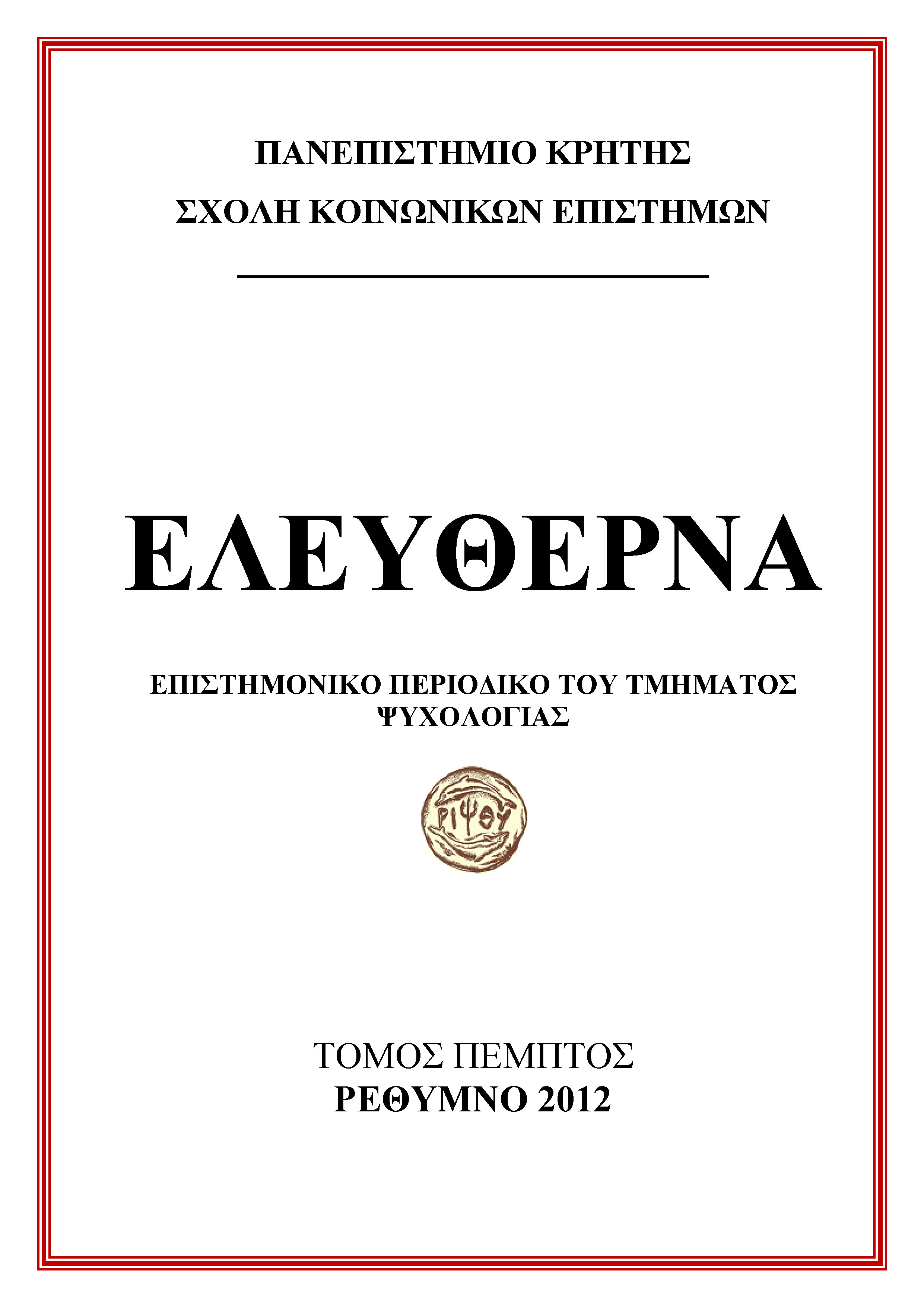I have wonted to be a boy since I was young
DOI:
https://doi.org/10.26248/eleutherna.v5i0.122Keywords:
alcohol, drugs, psychosis, social attachment, imaginary identification, body, sexual identityAbstract
Maria’s case study poses the question of gender in psychoanalysis. According to biology the human sexes are different between them as far as their anatomy and physiology are concerned. Psychoanalytic experience verifies that the relationship that humans have with their own sex as linguistic subjects is not determined by anatomy. Since there is no international rule, a guide that defines the relationship between a man and a woman. The subject, whether they are neurotic or psychotic or a pervert, they must invent a solution to try to find its place as far as the genders are concerned.
Maria has not been inscribed in the phallic function. Without the law of the signifier, Maria’s body loses its substance; it gets overwhelmed by the impulse. Maria is looking for a limitless satisfaction that meets the impulse of death. Alcohol and various substances do not become the object «cause of desire» but they become the object «cause of jouissance» of the subject, a jouissance that does not pass through the body of the «Other» as sexual body.
Maria is not a differentiation of the two sexes, she rejects her sex. She does not identify herself symbolically with other women or men but she is characterised by being unstable in her sex life. Alcohol helps her to socialize with men, who serve as the props of her imaginary identifications and this way negotiate her sexual identity.
Alcohol helps her to become a member of «a company of men’ and become socially connected with the Other. Alcohol and substances become, therefore, for Maria the medium through which she can cope with the consequences of her own rejection of The Name-of-the-Father. They become the sole partner that allows her to face the deed and relationship with the Other, the Other of sexuality.
Downloads
Published
How to Cite
Issue
Section
License
This work is licensed under a Creative Commons License Attribution-NonCommercial-ShareAlike 4.0 International (CC BY-NC-SA 4.0).
Under this license EJPBS provides immediate open access to its content on the principle that making research freely available to the public supports a greater global exchange of knowledge.


